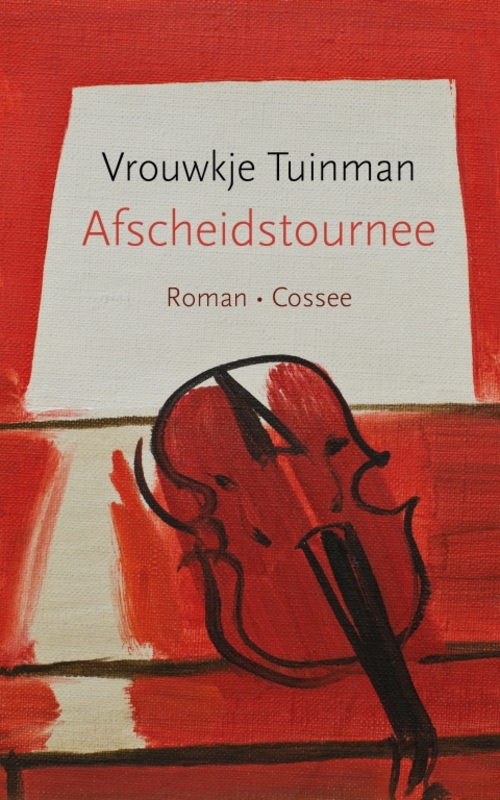
Vrouwkje Tuinman is a master in linking the humorous aspects of life with its harsh realities. Farewell Tour is about life, death, and the legacy of the praised and revered violin virtuoso Nicolò Paganini. His son Achille is fifteen when his father dies, and is forced from then onward to carry his father with him. Literally, as the church won’t allow a funeral for the ‘violin player of the Devil’.
Achille’s childhood was unconventional, but as an orphan, things seem worse. He is left with a collection of extraordinary instruments and the coffin containing his father. And it is hard to make choices for yourself when you have to drag your father along, everywhere you go.
Was Nicolò Paganini truly evil or does he deserve the rehabilitation that young Achille so desires? For fifty years Achille remains adamant in his search for finding a dignified resting place for his father. The name and legacy of the man who is buried in the garden not only determines the life of Achille, but also the lives of his wife and children.
With the bittersweet Farewell Tour, Vrouwkje Tuinman paints a playful portrait about the deepest connections that are possible between people. The wondrous story of the Paganini’s tells a tale about faith, family ties, dedication and honour, not shying away from depicting their downsides. Most of all, it raises the question how to continue living when saying goodbye has been made impossible.
‘This eternal ‘son of’ arouses admiration for the steadfastness with which he clings on to his own ethical guidelines, opposed to the prevalent standards. And that insight grows throughout the book, thanks to Vrouwkje Tuinman’s empathy and her lovely, compact writing style.’ - Opzij
‘Farewell Tour is a historical, psychological novel and a good read in the tradition of Rascha Peper: believable characters in a setting based on facts, but ultimately fictional. And above all: it is a classically constructed novel in five parts, illustrating Tuinman’s craftsmanship.’ - Leeuwarder Courant
‘With touching words Vrouwkje Tuinman tackles the essence of Achille’s problem: who is he? He decides to keep bees in order to have something only to himself. Achille dies in 1895 after he lost his wife and two of his sons. Tuinman paints a deeply empathetic portrait of father and son as well as all the surrounding characters: people like you and me.’ - Boekenkrant